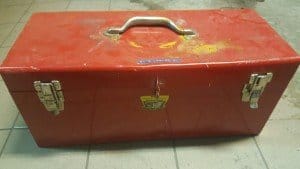Business families can often benefit from bringing in outside consultants or advisors to help them with certain matters. In addition to taking advantage of the expertise and experience of these resources, there is usually something else that is being sought.
The key feature that such an outsider brings along is an objectivity that people within the family just cannot have. Family members enjoy a deep connection and history, and while a lot of good comes out of these deep relationships, there can also be a downside.
When you think about the word objective, it is normal to contrast it with its cousin, “subjective”. To me, subjective conjurs up “subject to”, as in “subject to MY feelings”, as opposed to the more factual and objective, “how things really are”.
The word neutral is one that has slightly different connotations for me, as it brings up the part about not being partial, biased, or swayed by one side or the other, in a situation where people are in disagreement.
As someone who enjoys helping families sort through many of the “family issues” that arise around their businesses or wealth, being seen as neutral is one of the most important things I need to do to be successful.
Being perceived as “Dad’s guy”, hired to come in to deliver his message to the kids, has been the kiss of death for more than a few outsiders brought in to deal with intra-family affairs.
This fanatical desire of mine to work on my own neutrality has seen me search high and low for tools to achieve this goal, even while questioning whether true neutrality can ever be attained.
I am now halfway through the Third Party Neutral program (TPN) offered by the Canadian Institute for Conflict Resolution (CICR), having just completed my second of the 4 weeklong courses.
One of the things that has struck me thus far is that there is general agreement that becoming truly 100% neutral is an almost impossible goal. You would likely need to find a robot if you absolutely needed to find a completely neutral outsider.
The TPN program realizes this, and so their focus is on training people to become custodians of a neutral process. It is not the person who is neutral, but the process. The person serves as a guide, or facilitator, and works at getting the parties to follow the neutral process through to a resolution.
My favourite realisation regarding the neutrality of the process instead of the neutrality of the person comes back to my passion for this field.
I entered this field a few short years ago, in my late forties, in response to a calling to help families, because I have seen and heard too many stories about families who have made avoidable mistakes around their inter-generational transitions.
As the only son of an entrepreneur who built a business, and now the parent of two teenagers, I truly have seen both sides of things. Empathy is one of my strengths, but the problem in my head was how do I square the empathy with the neutrality.
The answer, which is slowly becoming more clear to me, lies in two areas.
The process: The process is neutral, and as the custodian of the process, I need to do my best to remain unbiased by one side or the other.
The family is the client: This has been one of my principles from day one, having learned it during the Family Enterprise Advisor (FEA) program. (www.IFEA.ca)
With a neutral process and the family as my client, I am now free to use my empathy and my passion without trying to hide them or feel the need to apologize.
One of the veteran instructors in the TPN program stopped by our class this week and spent a bit of time meeting all of the current students. I introduced myself to her and explained how I came to this field, which she referred to as “peace making”.
When I finished my intro, she summed me up in two words: Compassionate Neutral. It may sound like an oxy-moron to some, but you know what, I think it fits, and I like it.
Steve Legler “gets” business families.
He understands the issues that families face, as well as how each family member sees things from their own viewpoint.
He specializes in helping business families navigate the difficult areas where the family and the business overlap, by listening to each person’s concerns and ideas. He then helps the family work together to bridge gaps by building common goals, based on their shared values and vision.
His background in family business, his experience running his own family office, along with his education and training in coaching, facilitation, and mediation, make him uniquely suited to the role of advising business families and families of wealth.
He is the author of Shift your Family Business (2014), he received his MBA from the Richard Ivey School of Business (UWO, 1991), is a CFA Charterholder (CFA Institute, 2002), a Family Enterprise Advisor (IFEA 2014), and has received the ACFBA and CFWA accreditations (Family Firm Institute 2014-2015).
He prides himself on his ability to help families create the harmony they need to support the legacy they want. To learn how, start by signing up for his monthly newsletter and weekly blogs here.


